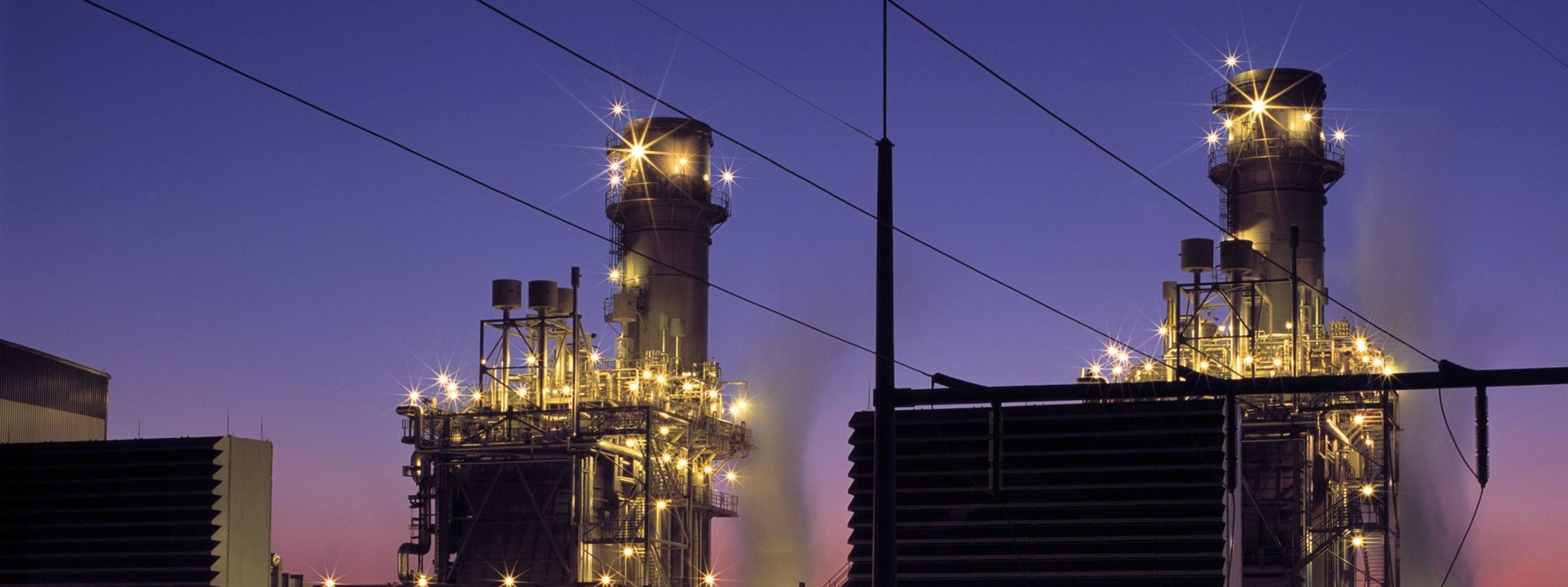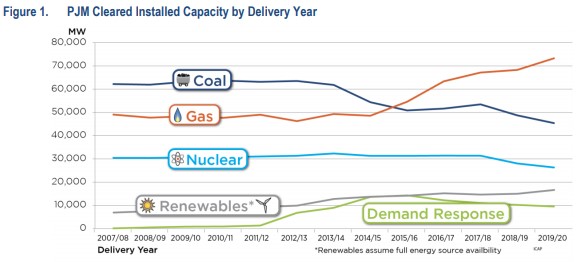
By Alexandra Kroger 12/13/2018
As with any commodity, electricity prices are subject to economic forces of supply and demand. When demand increases, wholesale electricity prices go up, which can lead to higher consumer bills. This makes sense in the summer, given the demand to power air conditioning on long, hot days. But few people use electricity to heat their homes, so why do electricity prices rise in the winter?
There are a few factors in electricity pricing beyond electricity demand that come into play during the winter. When thinking about electricity prices, one must consider where our electricity comes from. While renewable sources are growing as a share of total electricity generation, they still do not represent the majority of electricity generated on the grid. Historically, the majority of the electricity on the grid was generated using coal. Now, natural gas, traditionally more important as an energy source for heating, has become a dominant fuel in electricity generation. In the electricity grid that serves Philadelphia, this is even more evident. Pennsylvania is part of the PJM electricity market, and the dependence on natural gas in PJM has grown substantially over the past decade:

Source: PJM Interconnection, 2017
The picture is even more complicated by the uncertainty in the winter weather forecast (which will affect demand for heating and electricity) as well as in fuel supply levels. The dubious weather outlook and extremes like the polar vortex of 2014 are becoming the norm as a result of climate change. Current natural gas in storage is at its lowest level in over 10 years. Global dynamics like the price impact of exports and the decisions that US oil and gas developers will make in response to the recent decision by OPEC to cut oil production will have substantial impacts as well. This combination of uncertainties leads to a lot of volatility in energy markets, which leads to higher electricity prices for consumers. PJM officials are confident of having the fuel and infrastructure resources necessary to meet electricity needs for the winter 2018 season, but that may come at a high price.
The volatility of finite fossil fuel resources and the delivery risks inherent in an aging grid infrastructure make the need for a more reliable and sustainable clean energy alternative even more apparent. The Energy Co-op is committed to helping Philadelphia move towards this clean, energy-secure future.